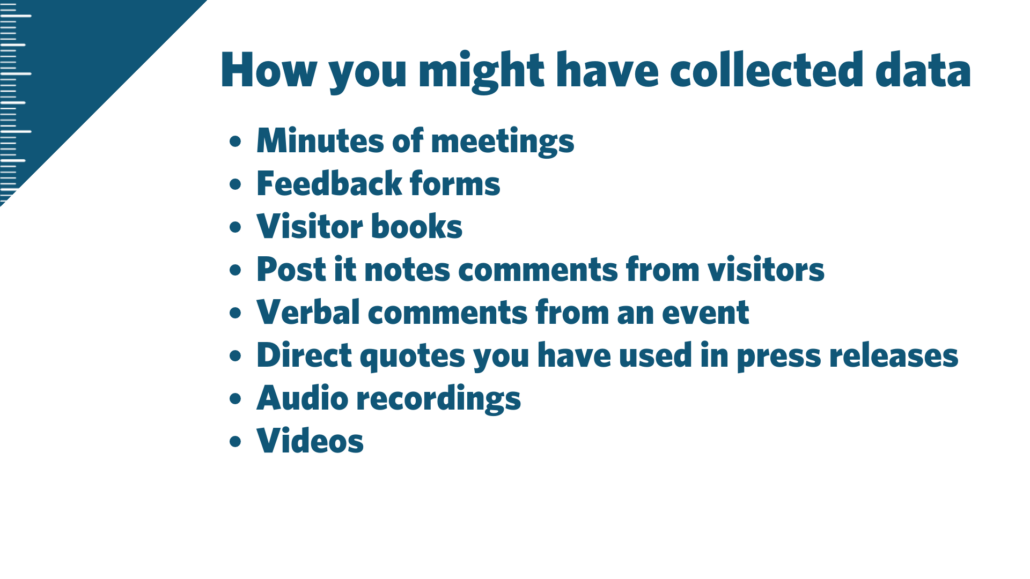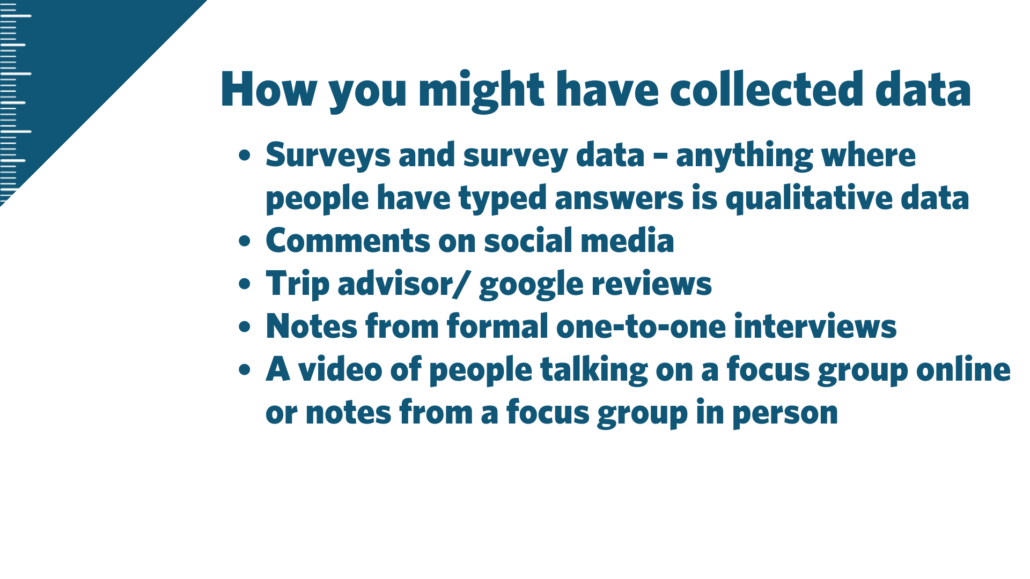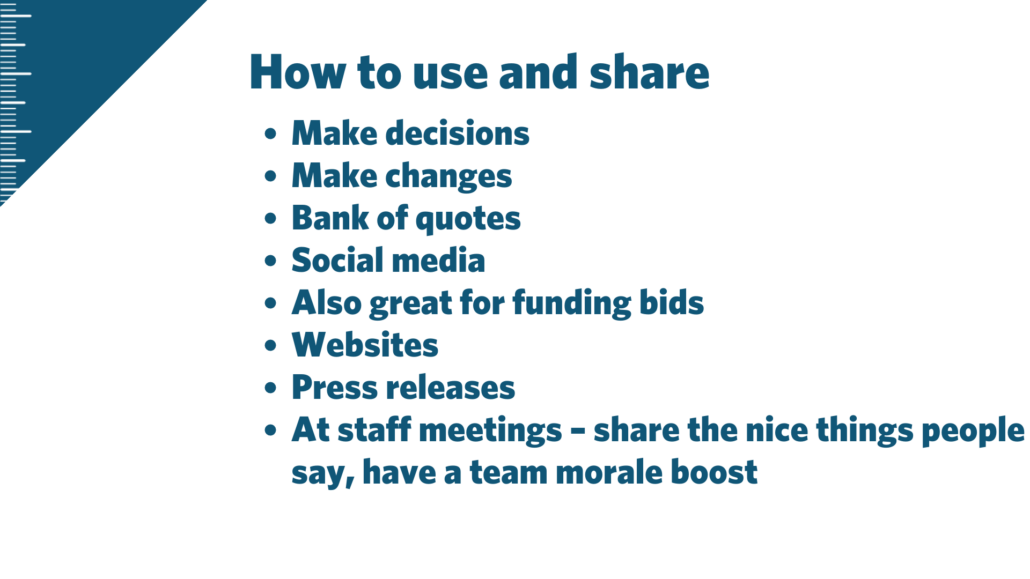DATA DRIVEN DECISIONS
June is a busy month for our team as it is when we make all the data-driven decisions for the National Portfolio Organisations (NPO) funded by the Arts Council.
We offer an affordable service to help organisations collect all the data they need during the year for the Arts Council. We also help them import it into the funder’s portal, which opens between April and June. Whilst we are then assembling all of the data, ready to fill in the portal, we analyse and report on all the data for the organisations, to enable them to make data-driven decisions. This is when we bring the data to life. Our data-driven decisions take the form of a team presentation followed by a report. We share trends shown over time, outputs, audience information and artist voices. We anonymise and share any staff issues and also provide staff and board demographic profiles. We look at ideas and spaces where organisations could shout about the great work they are doing (or do more of) alongside ways to improve. Some include practical operational tips to make sure organisations are using their limited resources and limited staffing in the best possible way, i.e. the most efficient way. The beauty of these presentations is that they are data-led and we don’t know what we will find until we analyse the information.
What is an NPO? The Arts Council explains “National Portfolio Organisations are leaders in their areas, with a collective responsibility to protect and develop our national arts and cultural ecology. Public investment brings public accountability, for us and for the organisations we invest in, and this is reflected in our expectations.”
Organisations do have to be accountable in terms of detailed data. It can be quite tricky to understand the requirements too, for example, in 2024/2025 there have been a lot of changes, with the launch of a new system for one part of data collection, called ‘Illuminate.’
The Evaluator has been offering this service for a number of years, and our NPO cohort has grown significantly since 2023. We love working with arts organisations to make sure we figure it out for them. The Arts Council is keen for organisations to use their own data more, so it’s a win-win relationship.
Are you an NPO organisation who has recently been through a challenging time in finding data, assembling the right information and putting all your data into the portal when it opened? If so then why not give us a call? We might be able to help you and it is much better value than you might expect. In fact, our packages have a standard cost of £2,400 plus VAT each year. You can call us on 01756 532 538 or email info@theevaluator.co.uk
If you are interested in this idea but are not quite sure you want to talk yet, then why not join our mailing list?
We only mail out about 3 newsletters per year, so you definitely won’t feel bombarded, but it is a great way to keep in touch and learn about our approach to evaluation and data in general.


